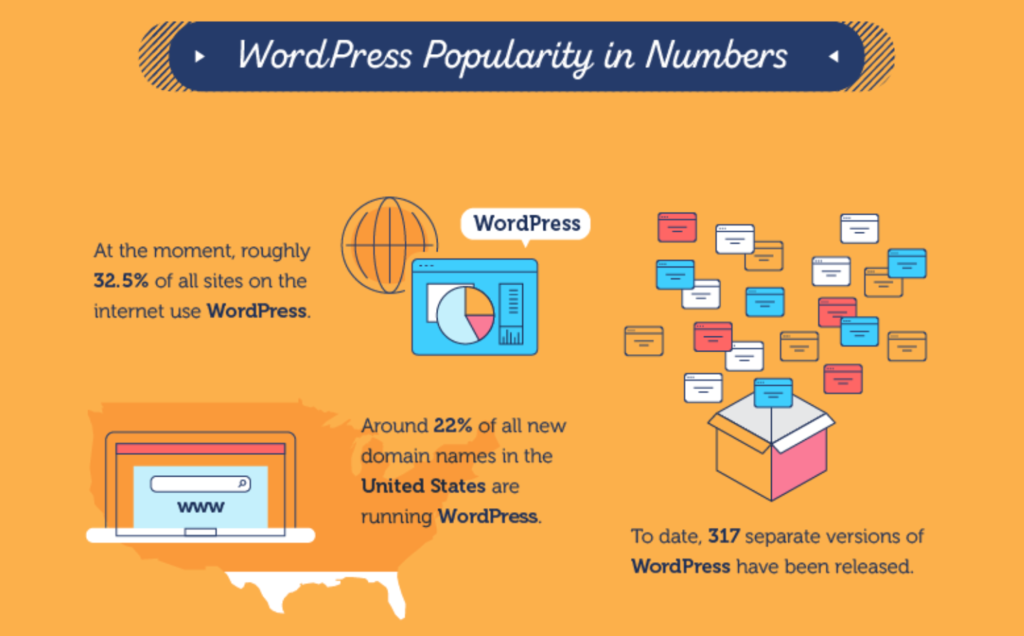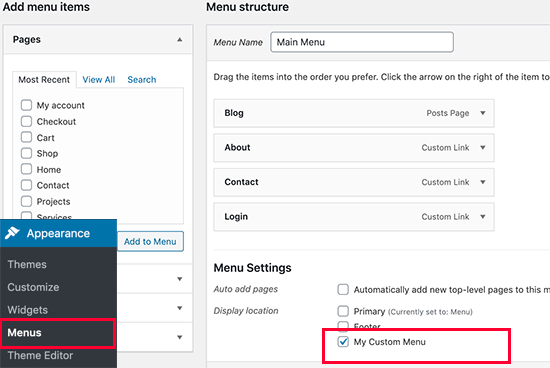Right now, there are 1,773,600,800 websites listed on the World Wide Web. But a good hosting service provider is the backbone of a successful website. And this is the reason behind the increasingly growing size of the global hosting industry.
In a time span of the past ten years, the hosting market sector has risen steeply from $24.63 billion and about to reach $156.4 million by the end of 2020.
According to some analysts, it will grow by $216.59 billion by 2025.
If you want blazing-fast performance with super-solid security for your website, you need to pick a reliable web hosting service provider. The two most popular options you have are cloud and WordPress hosting.
Don’t know the differences? Allow us to help.
Here is a complete discussion about the various benefits and disadvantages of cloud and WordPress hosting to help you choose the right host for you.
All you need to know about Cloud Hosting
Cloud hosting is a place where a business website is hosted virtually across numerous servers.
With a cloud hosting provider, you are not tied to a physical location which allows businesses to pull resources from all the servers coming in their way.
Pros of Cloud hosting
Cloud hosting rocks for a few great reasons:
- It is super scalable
A lot of cloud hosting service providers offer better uptime rates up to 99.9%. Don’t assume that these uptime rates are impossible because cloud hosting employers multiple interconnected servers that compensate for the servers that encounter issues.
- Higher accessibility
Cloud hosting does not have any restrictions when it comes to accessing your data. This feature maximizes productivity because your applications are 24/7 accessible and can be shared in no time with users, regardless of their location.
- Simple implementation
It offers trouble-free implementation for businesses by allowing them to retain existing applications and processes. Cloud hosting is easily managed by the internet because the cloud infrastructure is highly accessed by companies.
- Environment friendly
Everything will be stored in the cloud, meaning that no hardware is needed. This makes cloud hosting an ecofriendly option for enterprises. However, a backup must be created in case a disaster strikes and has the potential to leave your output stagnant.
- You need to pay the cost per head
With cloud hosting, you have to pay only for the resources that you use. This enables you to keep overhead technology costs at their minimum level. Moreover, businesses use their extra resources for improving their infrastructure and processes.
- Accurate recovery
When you go for cloud hosting, accurate retrievals of data and applications is guaranteed. If you are looking for a hosting provider with less downtime, it offers an ideal recovery plan for companies.
Are there any cons?
Cloud hosting comes with some limitations you must know.
- High vulnerability to attacks
With cloud hosting option, you completely lose control over your IT operations. Here’s how. You handover your company data and information which puts you in a vulnerable position.
- High recurring costs
Without a doubt, cloud hosting requires little investment in the start. However, managing the monthly IT maintenance cost could be an issue if you are a start-up company. You have to pay an agreed amount every month to get full access to your data. At, WhoGoHost, the monthly plan starts from $8.37, which is quite affordable.
In the event of a disaster, the cost of recovery could outweigh the benefits. All of this makes cloud hosting option a bit expensive than other third-pay hosting services.
- Speed issues
The speed of your internet connection determines how robust your connection with the server is. The cloud hosting service provider controls your access to your own servers. But this isn’t a problem if you have a fast internet connection. On the contrary, low speed can make you exhausted with the cloud-hosted server.
What is WordPress Hosting exactly
As the name suggests, WordPress hosting is exclusively for WordPress websites.
It is comparable to the commonly used hosting types like VPS, shared, and dedicated. However, it offers the easiest way to host a WordPress site.
Pros of WordPress hosting
There are some great WordPress hosting features that makes them popular among website owners.
- Designed for WordPress websites
WordPress hosting is specifically tailored for websites designed with WordPress. Therefore, WordPress hosting is the ultimate choice for these websites. WordPress developers love this feature. Most personal statement service websites are developed on WordPress.
- High-performance website speed
Speed is the most critical factor when it comes to website performance. When a user is able to navigate your site without any delays, it directly contributes to user experience. Additionally, if your website is slow, you won’t be able to convert your leads into actual customers. You don’t need to worry because WordPress hosting offers higher speed for your platform.
- Availability of plugins
You’ll find more than 54,000 free and paid plugins which allow you to give a customized look to your WordPress site. If you are thinking to add a specific feature on your website, there’s a high chance that a plugin to do it already exists.
- Improved backup
Almost all WordPress hosting packages include special website security and premium backup tools. SiteLock is software that periodically monitors the website and prevents it from malware attacks. It also notifies you to take necessary action. You can also configure the software to deal with security threats automatically.
- It is NOT pricey
A huge benefit of WordPress hosting is its high price. You’ll enjoy all the benefits without making a significant amount of investment. At WhoGoHost, the beginner plan starts from $4.46 per month. Isn’t it great?
Are there any cons?
WordPress hosting is not without flaws. Some of them are discussed below:
- Compromised flexibility
While additional plugins add amazing features to your website, some WordPress hosting providers block access to them. They do this because of performance and security reasons. Note that, the service aims to work in the best interest of their clients and will block anything that is considered a threat.
- Not a very reliable option
Just like students look for a cheaper option to online essay writer, it attracts beginners and inappropriate users considering the fact that it is an inexpensive option. This usually takes over huge resources and bandwidth making your website slow and unreliable.
- It comes with low scalability
With WordPress hosting, you can upgrade the same package even if your website traffic increases. You need to migrate to a completely new different solution. Therefore, it is a good option for websites with small traffic.
Which type is right for you?
No matter if you’re using cloud hosting or WordPress hosting, the best thing is that both hosting services are mutually exclusive.
Now you have a complete idea of the pros and cons of both web hosting options, which means that you are in a better position to pick the one that suits best to your needs.












